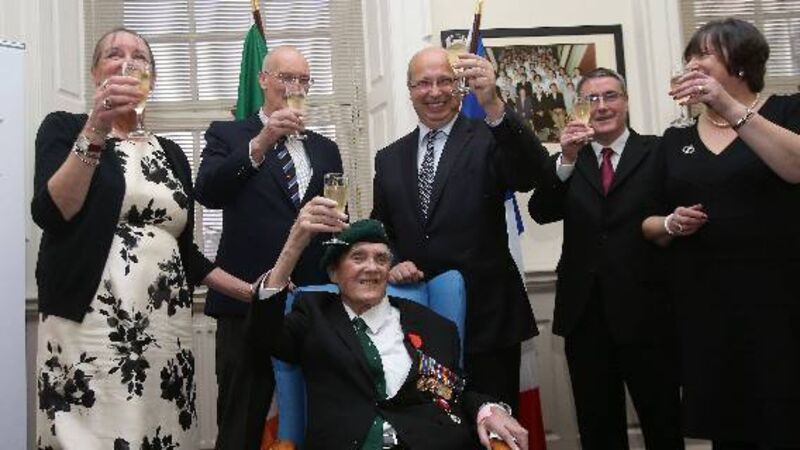‘This honour is for all who lost their lives’ says Irish D-Day veteran

Pat Gillen, 89, who was among the first wave of troops to land on Sword Beach in Normandy, on June 6, 1944, was presented with the Chevalier de la Légion d’Honneur by Jean-Pierre Thébault, the French ambassador to Ireland, in recognition of his outstanding bravery and military service at a special ceremony in the Mercy University Hospital (MUH) in Cork.













